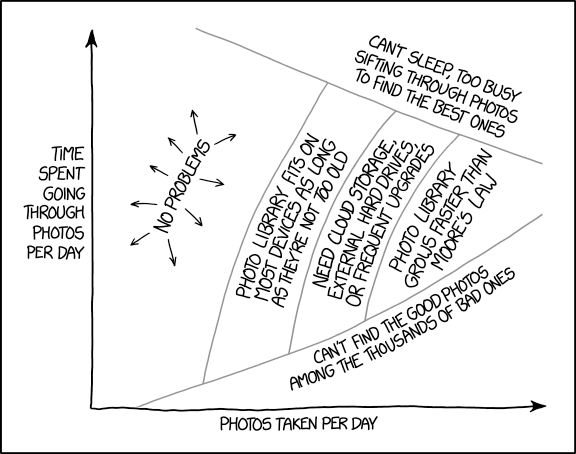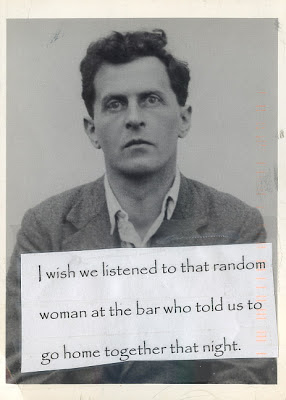
Dwh1985
Shared posts
COMMENTARY: Mindless metrics
(RNS) The go-to number in American religion is “ASA” — average Sunday attendance. Or as an irreverent colleague put it, “Fannies in the pews.”
It’s a meaningless metric, but it’s easy. Open the doors on Sunday, wait for the stragglers, then dispatch ushers to count the house.

Parishioners listen to the homily during Catholic mass at St. Therese Little Flower parish in Kansas City, Mo. on Sunday, May 20, 2012. RNS photo by Sally Morrow
This image available for Web and print publication. For questions, contact Sally Morrow.
Entire methodologies for church development have been built around this number, as if fanny count dictated how a church should behave. Problem is, ASA isn’t a useful measure of quantity, and it says nothing about quality.
A much better quantitative measure would get at “touches,” that is, how many lives are being touched by contact with the faith community in its various Sunday, weekday, off-site and online ministries —and then, for a qualitative measure, asking how those lives are being transformed.
Those are difficult metrics to track, of course, and that’s why many congregations stick to ASA and shun the harder work of measuring outcomes and impact.
Now consider how many useless metrics we use to chart our nation’s course. Politicians fixate on the federal deficit, for example, because it’s an easy number to fling at opponents, even though it doesn’t truly measure the nation’s economic well-being.
Same with the official unemployment rate — which measures one small flow in a deepening pool of economic despair.
Same with the “approval ratings” that give shallow insight into popularity, but say nothing about quality of leadership.
Many investors cling to the Dow Jones industrial average, even though averaging prices on 30 blue chip stocks says little about stock market trends. Business leaders look at earnings per share, while ignoring the research-and-development pipeline, innovation, customer service, employee turnover and capital spending.
Politicians and edu-crats force public schools to measure performance through standardized tests that yield simple PowerPoints and talking points, while they ignore actual learning, as well as readiness for adulthood, teacher morale and return on investment. A one-day test, the SAT, is misused as the key to college admission.
We stick to meaningless metrics for two reasons. First, they are easy to make, and lazy leaders love the easy.
Second, simple metrics make good weapons, whereas complex metrics that actually say something require subtlety and in-depth analysis. If you want to smite an organizational or political foe, draw a simple chart showing decline in one metric. To fight back, cite another metric that looks better.
They sell people short. Most of us can deal with complexity — we raise children, after all. We know from firsthand experience that an A in history pales beside a grasp of history. Or that being on the plus side of a simple unemployment statistic doesn’t mean we feel usefully employed or confident about our futures.
We know the real truth beneath the numbers used to peg us, such as our credit score and family income. We know our truth lies elsewhere. We wish people cared more about that truth.
In the end, we lose confidence in the metrics and in the leaders who wield them. In the church world, where I work, inadequate metrics means leaders were flying blind as the world changed, and failed also to see systemic changes inside the bubble.
I think citizens are quite capable of understanding an economic world deeper than partisans’ scare tactics. Politicians apparently want to keep us ill-informed. Like an usher counting fannies, it makes their work easier.
(Tom Ehrich is a writer, church consultant and Episcopal priest based in New York. He is the author of “Just Wondering, Jesus” and founder of the Church Wellness Project. His website is www.morningwalkmedia.com. Follow Tom on Twitter @tomehrich.)
YS/AMB END EHRICH
The post COMMENTARY: Mindless metrics appeared first on Religion News Service.
Sunday Secrets
 See More Secrets. Follow PostSecret on Twitter.
See More Secrets. Follow PostSecret on Twitter.
Amazon.com Widgets
Danny Meyer: Setting the Table
By Jesse Kornbluth
Published: May 29, 2013
I've been working with a CEO on a book that isn't the standard CEO bragfest. To start, I read a bunch of CEO books. Not a happy experience --- in our country, CEO skills seem to be external. They come in a toolbox. You can buy them. Some do, I guess, which explains a few things about the inhuman culture of companies i won't name. So it was a relief to pick up my old copy of Danny Meyer's book. It's about restaurants and food, but only on the surface. On other levels, it's one of the best management books --- and one of the best books about adult relationships --- I've ever read.
Let's start on the surface: The Zagat rankings are in constant flux in New York, but certain names are always near the top --- Gramercy Tavern, Eleven Madison Park, Union Square Café. For burgers with flair, surveys call out Shake shack, a mini-chain poised to go national.
I once heard a guru say: “When you aim for the highest things, only the highest things happen.” Many would scoff. They cut corners and do well in the short run. They have power for the thrill of pushing people around. Their word is not their bond. But we are talking about the span of a life here, and the worth of your work. Danny Meyer makes you hungry for the better life just in front of you --- and fills you with confidence that it's attainable. Eat his words.
Lock and LEGO: Six-Year-Old Kindergartner Put Into Detention Over Tiny LEGO Gun Found In His Possession
 We have yet another zero logic case out of our schools enforcing zero tolerance policies on guns. We have yet another case of lunacy in our schools as part of the zero tolerance policy regarding guns. We have previously explored how teachers and school administrators are expelling or suspending students for everything from finger guns to stick figures. (here and here and here and here and here and here and here and here and here and here). For a prior column, click here. Even nibbling a danish into a gun shape can get you expelled today. Now a 6-year-old kindergartner attending Old Mill Pond Elementary School in Palmer, Mass faced possible suspension or expulsion because he was spotted with a plastic Lego G.I. Joe gun — the size of a quarter — on to his school bus. After public outcry, the school decided that it would not discipline the boy. However, the boy was given detention after the discovery.
We have yet another zero logic case out of our schools enforcing zero tolerance policies on guns. We have yet another case of lunacy in our schools as part of the zero tolerance policy regarding guns. We have previously explored how teachers and school administrators are expelling or suspending students for everything from finger guns to stick figures. (here and here and here and here and here and here and here and here and here and here). For a prior column, click here. Even nibbling a danish into a gun shape can get you expelled today. Now a 6-year-old kindergartner attending Old Mill Pond Elementary School in Palmer, Mass faced possible suspension or expulsion because he was spotted with a plastic Lego G.I. Joe gun — the size of a quarter — on to his school bus. After public outcry, the school decided that it would not discipline the boy. However, the boy was given detention after the discovery.
After a fellow student alerted the bus driver, the boy was taken to detention. He was forced to apologize to the bus driver — presumably for endangering the whole bus with the quarter sized LEGO toy. Then school officials sent home a letter to all parents alerting them to the harrowing experience and reminding them of the zero tolerance policy.
Once again, teachers and administrators insist on applying this policy will little judgment or logic. The fact that this boy was put into detention at all is moronic, let alone requiring him to apologize to a bus driver that a toy was brought on board.
Source: Wash Times
How to get more done when you feel stuck

This post is about productivity. I have to tell you that because this is a career blog and career blogs need topics that fall into the career space. You can’t have a blog that doesn’t have a topic. Even Mark Cuban, who seems to not have a topic because he writes about basketball and colleges and eating at the iHop still has a clear topic: How to make a ton of money.
1. Life is easier if you embrace hardship instead of trying to avoid it.
My blog topic is not how to make a ton of money. It used to be. When I was in my twenties, and early 30s, my focus was money. But somewhere I realized that I wanted an interesting life more than money. I think it was when I was at Ingram Micro, a Fortune 50 company, and I was blown away at how boring and risk averse everyone was. The Fortune 50 is a study is seeking safety in product lines, in workplace practices, and in a stable life.
I am not the safety-seeking type. So I stopped trying to make a lot of money and started trying to do interesting things, and that’s when my career really took off. Investors love interestingness.
2. Focus on being interesting and then hurdles are predictable.
I found that if I focused on making my life interesting, money came. But if I focused on money, I got stuck. So I have spent the last ten years understanding the difference between going after money, going after happiness and going after interestingness. I have found that I am most productive when I follow my instinct for what will be interesting because people are more focused and more engaged when they do what interests them.
A lot of you will say you want to do what you love, but your vision of doing what you love is really limited. Like, you think you want to be a yoga teacher, but the yoga business is mostly about marketing yet you have this idea in your head that teaching yoga is interesting. But teaching yoga for someone else is being a worker bee and it’s working for free. Teaching yoga in your own studio is mostly a marketing job. (Even Mark Cuban says this, actually: follow your action not your passion.)
So let me be clear that choosing interesting work is difficult. It’s the hard path. It is not interesting to do something easy because if it’s easy, you already know the path and the outcome. How could that truly be interesting? You are lying to yourself.
3. If you admit you’re a cliche, you can use tried and true methods to help yourself.
When I launched Brazen Careerist, it was a blog network. I had already found my fifty favorite Gen Y bloggers and I had my editor, who is still my editor, edit those bloggers.
For the most part, he hated editing the bloggers.This was before he got medication so he was also surly and biting, and one of his biggest complaints was about posts that began by explaining why the person has not written in so long.
Because of this I am very careful not to open a post with that topic. Instead, I am slipping it in here, in the middle.
I have written about my life for my whole life. It just happens that it’s my job now, but I’d do it anyway. This is probably not good—for one thing, it pegs me as very likely to kill myself. For another thing, when I am uncertain about my life I shut down. In my seminar about how to write about your life, I realized, while I was teaching it, that writing about your life means facing your life. I am having a hard time facing my life now.
4. Be clear on what you hate about yourself. You have to see it to move past it.
It’s a pattern. Here are the times I had a hard time writing about my life:
When I had a baby. (I started republishing old posts and I got fired for breaking my contract.)
When I launched a company. (I wanted to write about entrepreneurship but I got scared that people only wanted to read about climbing a corporate ladder.)
When I moved to the farm. (I wanted to write about the farm but I thought people only liked me because I was from LA/NY and other big cities where I’ve landed.)
Now. When I’m scaling back my career to homeschool my kids. I can’t even write that without feeling a little sick. I don’t want to face that. So I don’t want to write anything because I don’t want to see it.
I coach so many people who want to have kids and are feeling sick about the idea of scaling back their career. They feel sick about the idea of being grouped with stay-at-home moms instead of high-achieving men. I get it. I feel that way too. The first thing I noticed, in fact, when I started homsechooling, was that I miss being surrounded by men. Because that’s what happens when you have a big career and you are a woman. Most women drop out, and it’s the men that are left. You get used to being surrounded by men.
5. You are not special. You are like other people. So find people who are like you.
But luckily, people send me tons of links about scaling back careers, and I am getting confident in my choices. Here are some of my favorite links:
The Harvard Business Review says that it’s not the women who need to lean in, it’s the men. The author, James Allworth, points out that all the studies about what makes a fulfilling life show that it’s relationships and not work. So to tell people to forgo relationships in order to work more is absurd. Sheryl Sandberg’s book assumes that women are not in high-powered positions because women make the wrong choices. But people who choose to have a smaller career and pay attention to family relationships are making better choices, and men need to lean in to their relationships.
Another link that makes me happy is that the best educated moms are the ones most likely to opt out. When I saw the headline it made immediate sense to me. Those are the moms most likely to feel that they have a choice—because their husband earns enough money and they themselves are capable of generating income from home. The research also makes sense because the best educated moms are the ones most likely to be able to process the data that explains why it’s not a given that everyone should try to have the biggest possible career. It’s new data and it’s difficult to process after twenty years of feminist diatribes about the glass ceiling. But the smartest women are the first to go against the grain—which is what opting out is, since the media does not encourage it.
Here’s what I’ve learned from not writing about my life because I was scared you wouldn’t like it: I’ve learned that you don’t care what I do in my life as long as I’m interesting. If I am doing something that’s scary, and I tell you, then you can identify with me when you do something scary. What this community is, really, is people who want to do something scary. Because life is very, very boring if we don’t scare ourselves.
University of Texas researchers design synthetic trees for producing water and energy efficient algal biofuels
Dwh1985And this is what the future brings, new man-made trees!
































